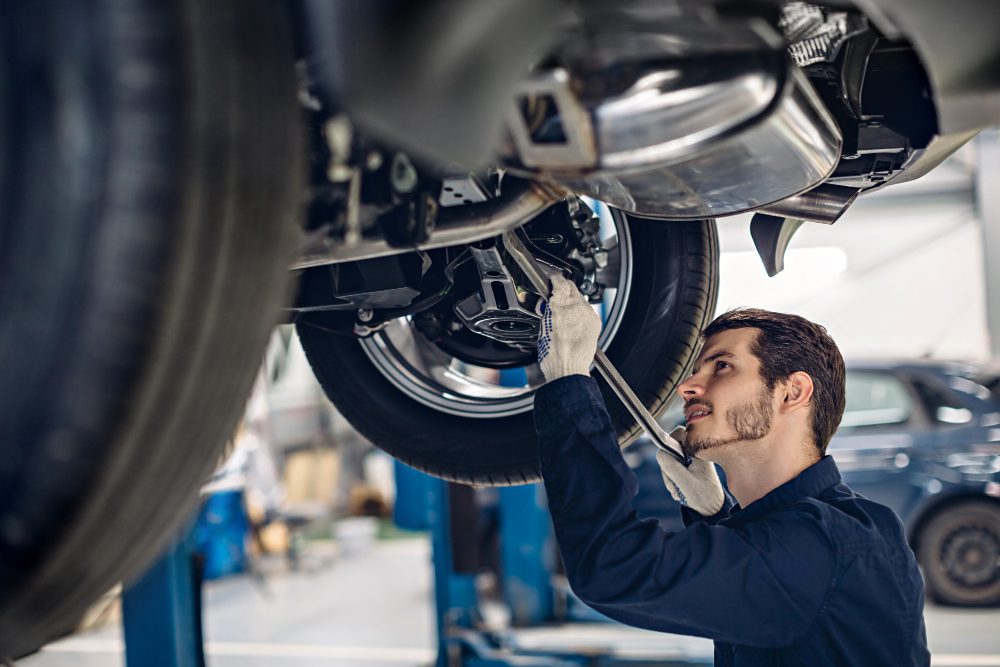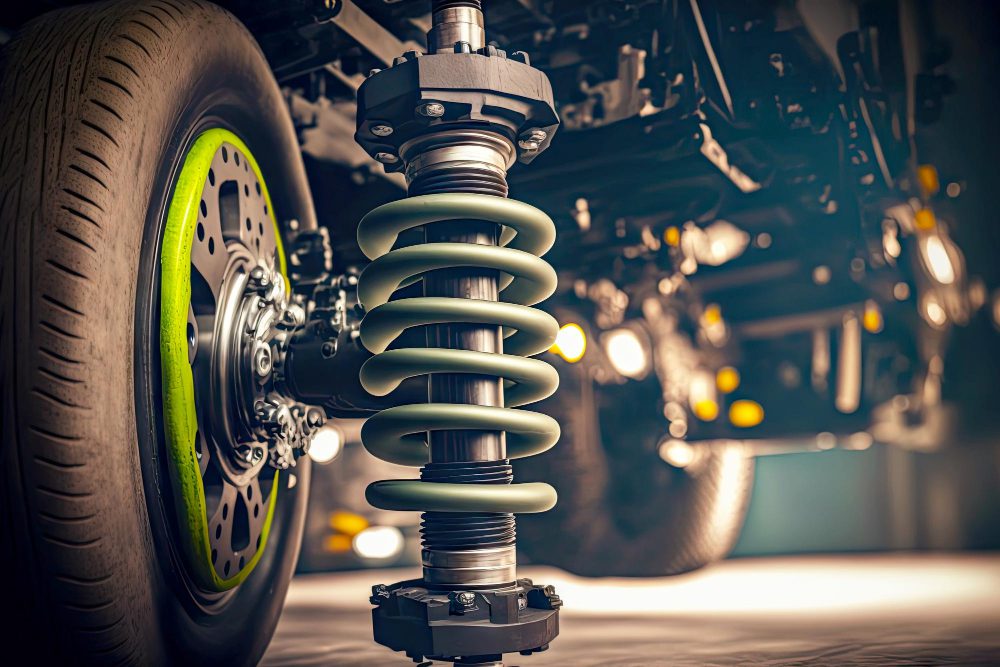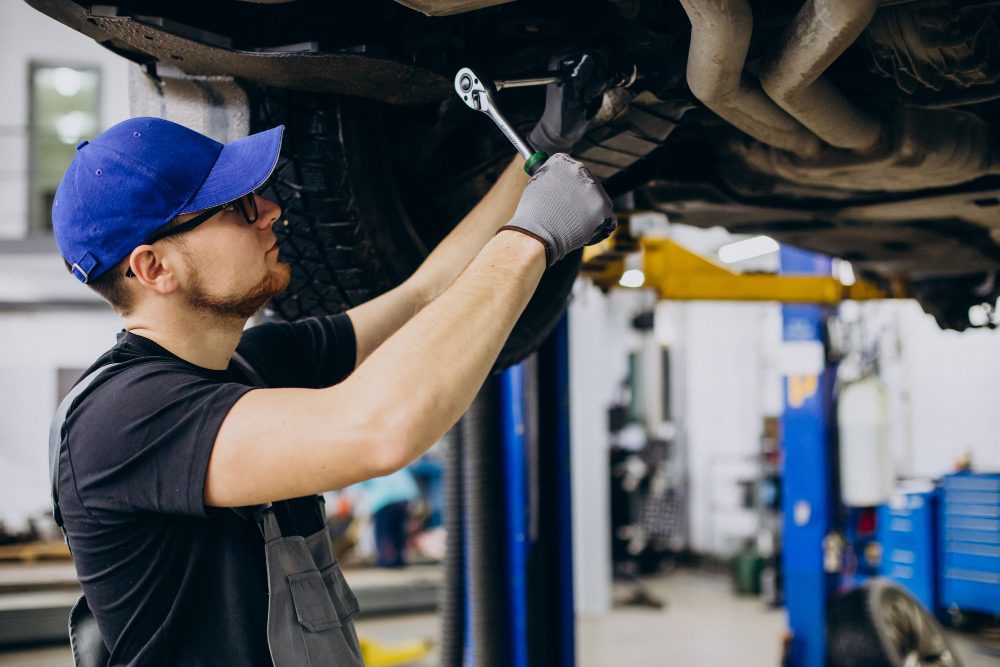Does bad suspension affect engine?
When it comes to the performance and overall health of a vehicle, many factors come into play. One such factor that is often overlooked is the condition of the suspension system. While it may not seem immediately obvious, a bad suspension can indeed have an impact on the engine and other components of a car.
The Importance of a Healthy Suspension System
A suspension system is responsible for supporting the weight of a vehicle, absorbing shocks from the road, and providing stability and control while driving. It consists of various components, including springs, shock absorbers, struts, and linkages. A well-maintained suspension system ensures a smooth and comfortable ride, as well as optimal handling and braking.
When a suspension system becomes worn out or damaged, its ability to perform these functions effectively diminishes. This can lead to several issues that indirectly affect the engine’s performance and longevity.
The Impact of Bad Suspension on the Engine
1. Misalignment: One of the primary consequences of a bad suspension is misalignment. When the suspension system is not properly aligned, it puts additional stress on other parts of the vehicle, including the engine. Misalignment can cause uneven wear on tires, increased rolling resistance, and decreased fuel efficiency, ultimately affecting the engine’s performance.
2. Vibrations: A worn-out suspension system fails to absorb vibrations and shocks from the road effectively. These vibrations can be transmitted to the engine and other mechanical components, potentially causing damage over time. Excessive vibrations can lead to increased wear and tear on the engine, resulting in reduced efficiency and potentially costly repairs.
3. Increased Load: When the suspension system is compromised, it may not be able to support the weight of the vehicle properly. This can lead to an increased load on certain areas of the engine, affecting its overall performance. Additionally, an imbalanced load distribution can impact the vehicle’s stability and handling, posing a safety risk on the road.
Proper Suspension Maintenance for Engine Health
To ensure the longevity of both your suspension system and engine, regular maintenance is crucial. Here are some recommended steps to take:
- Inspect Your Suspension: Regularly check for any signs of wear, such as leaking shock absorbers, uneven tire wear, or sagging springs.
- Replace Worn Components: If any suspension components are worn out or damaged, it’s important to replace them promptly to prevent further issues.
- Align the Suspension: Periodically aligning your suspension system helps optimize its performance and reduces unnecessary strain on the engine.
- Monitor Vibrations: If you notice excessive vibrations while driving, have your suspension system inspected to identify and rectify any potential problems.
“A well-maintained suspension system not only ensures a comfortable ride but also contributes to the overall health and performance of the engine.”
Overall, while bad suspension may not directly affect the engine, its impact on other aspects of the vehicle can indirectly influence engine performance and longevity. Regular inspection and maintenance of your suspension system are key to preserving both the comfort of your ride and the health of your engine.
How long can car suspension last?
The lifespan of a car’s suspension system can vary depending on various factors, such as the type of suspension, driving conditions, and maintenance. Generally, car suspensions are built to last for a long time, but wear and tear can occur over time.
Factors affecting the lifespan of car suspension
1. Type of suspension: Different types of suspensions have different durability levels. Some common types include coil spring suspension, leaf spring suspension, and air suspension.
2. Driving conditions: Frequent exposure to rough roads, potholes, or off-road driving can put more strain on the suspension system, potentially reducing its lifespan.
3. Maintenance: Regular maintenance, including inspections, lubrication, and timely replacement of worn-out components, can significantly extend the life of the suspension system.
Signs of worn-out suspension
It’s important to be aware of the signs indicating that your car’s suspension may need attention. These signs may include:
- Unusual noises, such as clunking or squeaking, when driving over bumps or uneven surfaces.
- Poor handling or a bumpy ride.
- Uneven tire wear.
- Leaking shock absorbers or struts.
Impacts of bad suspension on the engine
While bad suspension alone does not directly affect the engine, it can indirectly impact the engine’s performance and longevity.
A faulty suspension system can cause improper weight distribution, leading to uneven tire wear and compromised traction. This can result in excessive strain on other components, including the engine, as it has to work harder to compensate for the compromised suspension system.
Additionally, a worn-out suspension may cause vibrations that can affect the overall driving experience and potentially disrupt the engine’s smooth operation.
How do you check car suspension?
Visual Inspection
A visual inspection is the first step in checking your car’s suspension. Look for any signs of wear or damage, such as leaking shock absorbers, broken springs, or loose connections. Pay attention to uneven tire wear, as it can indicate suspension problems.
Tire Bounce Test
One way to check your car’s suspension is by performing the tire bounce test. Push down firmly on one corner of the car and observe how it reacts. If the car bounces excessively or continues to bounce, it may indicate worn-out shocks or struts.
Steering Responsiveness
Another way to assess your car’s suspension is by evaluating the steering responsiveness. If you notice that the steering feels loose or unsteady, it could be a sign of suspension issues. Pay attention to any vibrations or pulling to one side while driving.
Listen for Unusual Noises
Strange noises, such as clunking or squeaking, can also indicate suspension problems. Listen carefully while driving over bumps or rough roads. If you hear any unusual sounds coming from underneath the car, it’s worth getting the suspension checked.
Take Note of Ride Quality
If your car’s suspension is compromised, you may experience a rough or uncomfortable ride. Pay attention to how your car feels when going over potholes or uneven surfaces. Excessive bouncing or a harsh impact could be indicators of suspension issues.
“Regular maintenance and inspections are crucial for ensuring your car’s suspension is in good condition.”
“Regular maintenance and inspections are crucial for ensuring your car’s suspension is in good condition.”
By following these steps, you can perform a basic check on your car’s suspension. However, for a comprehensive assessment and any necessary repairs, it is recommended to consult a professional mechanic.
HTML Table Example:
| Symptom | Possible Suspension Issue |
|---|---|
| Uneven tire wear | Wheel alignment or worn-out shocks |
| Steering feels loose | Worn-out ball joints or tie rods |
| Excessive bouncing | Worn-out shocks or struts |
| Clunking noises | Worn-out suspension components |
Remember, proper maintenance of your car’s suspension is essential for a smooth and safe driving experience. Regularly checking and addressing any issues promptly can help prevent more significant problems in the long run.
- Visual inspection
- Tire bounce test
- Steering responsiveness
- Listen for unusual noises
- Take note of ride quality
Conclusion
Car suspensions are designed to last for a considerable amount of time, but regular maintenance and proper driving habits play crucial roles in extending their lifespan. It’s essential to pay attention to any signs of wear and address them promptly to ensure a safe and comfortable driving experience while minimizing the potential impact on the engine.



